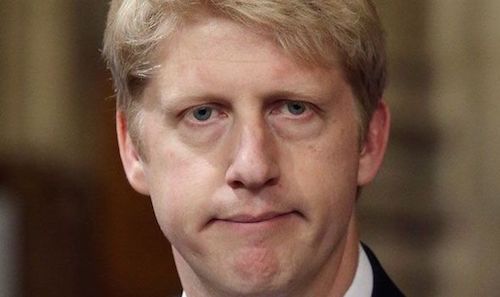Government reveals plans to crack down on essay-writing websites
From autumn 2017, universities will be expected to impose tougher penalties on students who pay for essay-writing services.
 Universities Minister Jo Johnson has called on watchdogs to take serious action against websites advertising essay-writing services to students, and for unis to introduce "tough new penalties" for those who use the sites.
Universities Minister Jo Johnson has called on watchdogs to take serious action against websites advertising essay-writing services to students, and for unis to introduce "tough new penalties" for those who use the sites.
He’s expressed concern that these websites could undermine the reputation of degrees obtained in the UK, saying it’s “vital that the sector works together to address this in a consistent and robust way."
A few years ago, google agreed to ban essay-writing websites from advertising on the search engine (along with a few other nasties!) but this doesn’t stop the sites from appearing in online searches.
Is this really a big problem in the UK?
 There are over 100 essay-mill websites currently in operation, and sites like Gumtree are riddled with people offering essay-writing services anonymously - so it’s a bigger issue than many perhaps think.
There are over 100 essay-mill websites currently in operation, and sites like Gumtree are riddled with people offering essay-writing services anonymously - so it’s a bigger issue than many perhaps think.
Students are offered everything from £100 for an essay to £1000s for an entire Master's or PhD thesis.
According to the Quality Assurance Agency (QAA), as much as 17,000 cases of academic offences such as essay-buying are reported in the UK every year!
We even recently reported how one Law student in Scotland made £15,000 a year producing work for cheating students with the cash to spare. Her services include everything from responding to emails on students’ behalf to writing an entire Master’s thesis for someone.
‘Hard to detect’
Plagiarism is already considered a really serious offence at universities, and the repercussions can involve anything from losing marks to being expelled from an institution entirely.
However, this hasn’t stopped thousands of students making use of the services - particularly because work produced through these sites is much harder to detect.
Unlike with plagiarism - where content of an essay is copied from another source - paying for essay services is much harder to detect as it is still original content, but produced in exchange for hard cash.
Many of these websites even promote ‘plagiarism free guarantees’ or essays that have been tested using the same plagiarism detection software that unis themselves use.
How are the government tackling the issue?
 At the moment, universities decide on penalties for cheating students independently on a case-by-case basis, but the government want to make punishments for cheating more standardised across unis.
At the moment, universities decide on penalties for cheating students independently on a case-by-case basis, but the government want to make punishments for cheating more standardised across unis.
Therefore, in addition to asking watchdogs to investigate essay-mill sites, the government has asked the QAA, NUS and Universities UK to come up with voluntary guidelines that all universities should follow when it comes to punishing essay cheats.
The guidelines will apparently be introduced before next academic year, and all universities are encouraged to sign up (2017/18).
Johnson has said:
This form of cheating is unacceptable, and every university should have strong policies and sanctions in place to detect and deal with it.
Deadlines getting the better of you? Why risk your degree with essay-writing websites when you can write 3,000 in a day, easy! We show you how.








